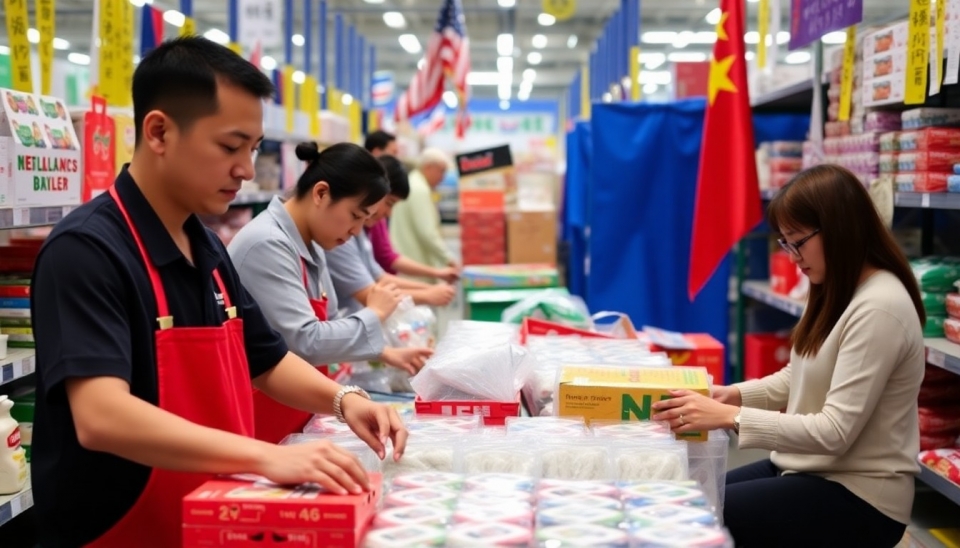
The Thai industrial sector is preparing for significant disruptions as a surge of Chinese products is expected to enter the market following the United States' decision to relax tariffs on various imports from China. This strategic move is set to reshape the competitive landscape in Thailand, where many industries are already grappling with the repercussions of the global supply chain shifts triggered by recent geopolitical tensions.
According to industry insiders and economic analysts, the anticipated influx of Chinese goods poses a dual-edged sword for Thailand. While consumers might benefit from lower prices and increased product variety, local manufacturers fear that their profit margins could be severely impacted. The Chinese manufacturing sector is known for its ability to produce goods at a lower cost due to economies of scale and less expensive labor. This situation presents a considerable challenge to Thai companies, which may struggle to compete against the onslaught of cheaper imports.
As businesses from various sectors brace for this new reality, especially in electronics and textiles, the Thai government has been urged to take proactive measures to support local industries. One suggested approach is the implementation of protective tariffs on specific Chinese products to level the playing field. However, such a move could also lead to increased trade tensions and retaliatory measures from China, which may complicate Thailand's trade relationships.
In the midst of this evolving scenario, local industry representatives have expressed concerns about potential layoffs and factory closures if the situation is not addressed promptly. Smaller manufacturers, in particular, might bear the brunt of the competition, as they often lack the resources and technology that larger corporations possess to adapt to sudden market changes.
Additionally, analysts predict that the Thai government must also focus on enhancing the competitive capabilities of domestic industries. Investments in technology and innovation will be crucial for Thai businesses to ensure they can effectively compete with the anticipated influx of Chinese goods. Training programs and financial assistance could help equip local manufacturers with the necessary tools to thrive in an increasingly challenging environment.
The tensions in the trade landscape continue to unfold as Thai industry stakeholders await the potential outcomes of US-China trade relations. While the immediate effects of this influx of Chinese goods remain uncertain, one thing is clear: the Thai industrial sector is at a pivotal moment where adaptation and strategic planning will be essential for survival and growth.
As Thailand navigates this complex situation, the resilience and ingenuity of its local industries will be put to the test. The coming months will be critical for determining how effectively the country can weather this storm and leverage its strengths to emerge competitive in a rapidly changing global marketplace.
#Thailand #ChineseGoods #USTariffPolicy #GlobalTrade #Economy #Manufacturing #SupplyChainDisruption #TradeRelations
Author: Liam Carter




